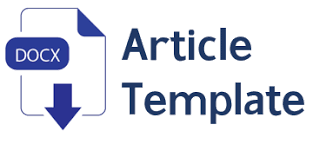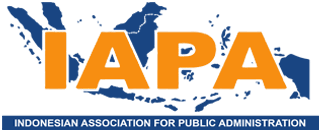OPTIMIZING THE BUREAUCRACY IN ECONOMIC DEVELOPMENT EFFORTS TO PROVIDE COMMUNITY WELFARE IN INDONESIA
DOI:
https://doi.org/10.30997/jsh.v14i2.8672Keywords:
Bureaucracy, Economic Development, OptimizationAbstract
This study aims to see how the government optimizes bureaucratic performance to help economic development and social welfare. The purpose of the bureaucracy in carrying out public services is to provide better services to the community so that people are happy with the services provided by the government. The process of economic development requires an efficient bureaucracy to maintain coordination between the government and the parties involved. In an effort to encourage community economic growth, the government must also carry out the process of making bureaucratic policies such as efficient socialization of programs. This study uses a qualitative analysis method with triangulation data analysis to make it easier to see the data. Based on the results of the analysis of this study, it seems that the government has streamlined the bureaucracy well. However, there are still problems in the bureaucratic process, as seen from the number of economies that grow from year to year, but this growth is unstable in the process of bureaucratic services carried out by the government, such as the high number of MSMEs in Indonesia.
References
Al Syahrin, M. N. (2018). Kebijakan Poros Maritim Jokowi dan Sinergitas Strategi Ekonomi dan Keamanan Laut Indonesia. Indonesian Perspective, 3(1), 1–17.
Ali, D. M., Prasojo, E., & Jannah, L. M. (2017). The Transformation of merit system in Indonesian civil servant promotion system. International Journal of Management and Administrative Sciences (IJMAS), 5(04), 20–28. www.ijmas.orgwww.ijmas.org
An, S., Song, M., & Meier, K. J. (2022). Representative bureaucracy and the policy environment: Gender representation in Forty‐Four countries. Public Administration, 100(4), 900–922.
Aryadi, R., & Hoesin, S. H. (2022). Kewirausahaan dan Usaha Mikro Kecil Menengah (UMKM) Sebagai Salah Satu Solusi Untuk Mengatasi Masalah Ketenagakerjaan di Indonesia. Jurnal Hukum Dan Bisnis (Selisik), 8(1), 57–72.
Brotestes Panjaitan, R., Sumartono, S., Sarwono, S., & Saleh, C. (2019). The role of central government and local government and the moderating effect of good governance on forest fire policy in Indonesia. Benchmarking, 26(1), 147–159. https://doi.org/10.1108/BIJ-12-2017-0336
Canovi, M., & Pucciarelli, F. (2019). Social media marketing in wine tourism: Winery owners’ perceptions. Journal of Travel & Tourism Marketing, 36(6), 653–664.
Dhaliwal, I., & Hanna, R. (2017). The devil is in the details: The successes and limitations of bureaucratic reform in India. Journal of Development Economics, 124, 1–21.
Doberstein, C. (2016). Designing Collaborative Governance Decision-Making in Search of a ‘Collaborative Advantage.’ Public Management Review, 18(6), 819–841. https://doi.org/10.1080/14719037.2015.1045019
Doornbos, M. (2019). ‘Good governance’: The rise and decline of a policy metaphor? In Changing the Conditions for Development Aid (pp. 93–108). Routledge.
Faedlulloh, D., Yulianto, & Karmilasari, V. (2019). Bureaucratic Reform in the Second Period: Promoting Agenda for Structural Reform and Mindset. LPPM Unila-Institutional Repository.
Fajar, M., & Azhar, Z. (2018). Indeks Persepsi Korupsi dan Pembangunan Manusia Terhadap Pertumbuhan Ekonomi di Negara-Negara Asia Tenggara. Jurnal Ecogen, 1(9), 1–7.
Gaus, N., Sultan, S., & Basri, M. (2017). State bureaucracy in Indonesia and its reforms: An overview. International Journal of Public Administration, 40(8), 658–669.
Goldsmith, A. A. (1999). Africa’s overgrown state reconsidered: bureaucracy and economic growth. World Politics, 51(4), 520–546.
Gomide, A., Machado, R., & Albuquerque, P. (2019). Measuring State capcity in contemporary Brazil: is weberian bureaucracy a useful paradigm. Artigo Apresentado, 4th.
Gulzar, S., & Pasquale, B. J. (2017). Politicians, bureaucrats, and development: Evidence from India. American Political Science Review, 111(1), 162–183.
Guryanova, A. V, Smotrova, I. V, Makhovikov, A. E., & Koychubaev, A. S. (2020). Socio-ethical problems of the digital economy: challenges and risks. In Digital transformation of the economy: Challenges, trends and new opportunities (pp. 96–102). Springer.
Hasmath, R., Teets, J. C., & Lewis, O. A. (2019). The innovative personality? Policy making and experimentation in an authoritarian bureaucracy. Public Administration and Development, 39(3), 154–162.
Indrawati, I., Febrianta, M. Y., & Amani, H. (2020). Identification of e-government indicators for measuring smart governance in Bandung City, Indonesia. In Advances in Business, Management and Entrepreneurship (pp. 895–900). CRC Press.
Irianto, B. S. (2021). Kebijakan Poros Maritim Dan Strategi Ekonom Serta Keamanan Laut. Jurnal Justiciabelen, 4(1), 1–10.
Junita, A., Meutia, R., Andiny, P., & Wahyuningsih, P. (2022). Standarisasi Produk dan Penetapan Strategi Pemasaran Gula Semut Sebagai Upaya Peningkatan Daya Saing Produk di Desa. Jurnal Buletin Al-Ribaath, 19(1), 49–54.
Kallio, T. J., Kallio, K.-M., & Blomberg, A. (2020). From professional bureaucracy to competitive bureaucracy–redefining universities’ organization principles, performance measurement criteria, and reason for being. Qualitative Research in Accounting & Management.
Labolo, M., & Indrayani, E. (2017). Bureaucratic reform and the challenge of good governance implementation in Indonesia. Journal Of Asian Review Of Public Affair And Policy, 2(4), 25–47.
Lazzarini, S. G., Pongeluppe, L. S., Ito, N. C., Oliveira, F. de M., & Ovanessoff, A. (2020). Public capacity, plural forms of collaboration, and the performance of public initiatives: A configurational approach. Journal of Public Administration Research and Theory, 30(4), 579–595.
Lee, G. R., & Lee, S. (2020). How outsourcing may enhance job satisfaction in the US federal bureaucracy: Exploring the role of knowledge sharing. The American Review of Public Administration, 50(4–5), 387–400.
Maryanti, S., Netrawati, I. O., & Faezal, F. (2019). Menggerakan Perekonomian Melalui Pemulihan Usaha Dan Industri Mikro Kecil Menengah Pasca Bencana Gempa Bumi Di Nusa Tenggara Barat. Media Bina Ilmiah, 14(4), 2321. https://doi.org/10.33758/mbi.v14i4.342
Mlambo, V. H., Zubane, S. P., & Mlambo, D. N. (2020). Promoting good governance in Africa: The role of the civil society as a watchdog. Journal of Public Affairs, 20(1), e1989.
Ness, G. D. (2021). Bureaucracy and rural development in Malaysia: A study of complex organizations in stimulating economic development in new states. University of California Press.
Obamuyi, T. M., & Olayiwola, S. O. (2019). Corruption and economic growth in India and Nigeria. Journal of Economics & Management, 35, 80–105.
Pratama, P. E., Kamil, M., & Salahudin, S. (2019). Implementation of the Integrity Zone Development Program towards a Corruption-Free Area and a Serving Clean Bureaucracy Region. Journal of Local Government Issues (LOGOS), 2(2), 134–148.
Ray, V. (2019). A Theory of Racialized Organizations. American Sociological Review, 84(1), 26–53. https://doi.org/10.1177/0003122418822335
Riaz, H., Saeed, A., Baloch, M. S., & Khan, Z. A. (2019). Valuation of Environmental Management Standard ISO 14001: Evidence from an Emerging Market. Journal of Risk and Financial Management, 12(1), 21.
Rimawan, M., & Aryani, F. (2019). Pengaruh alokasi dana desa terhadap pertumbuhan ekonomi, indeks pembangunan manusia serta kemiskinan di Kabupaten Bima. Jurnal Ilmiah Akuntansi Dan Humanika, 9(3), 287–295. https://ejournal.undiksha.ac.id/index.php/JJA/article/view/22539
Rochwulaningsih, Y., Sulistiyono, S. T., Masruroh, N. N., & Maulany, N. N. (2019). Marine policy basis of Indonesia as a maritime state: The importance of integrated economy. Marine Policy, 108, 103602.
Rockman, B. A. (2020). Bureaucracy, power, policy, and the state. In The state of public bureaucracy (pp. 141–170). Routledge.
Schröer, C., Kruse, F., & Marx Gómez, J. (2020). A Qualitative Literature Review on Microservices Identification Approaches. In Communications in Computer and Information Science (CCIS) (pp. 151–168). https://doi.org/10.1007/978-3-030-64846-6_9
Sumartono, S., & Hermawan, H. (2020). The Reform of Public Service Bureaucracy in the Investment Sector Within the Pentahelix Perspective: A New Hope in the Era of Autonomy? Australasian Accounting, Business and Finance Journal, 14(1), 33–45.
Turner, M., Prasojo, E., & Sumarwono, R. (2022). The challenge of reforming big bureaucracy in Indonesia. Policy Studies, 43(2), 333–351.
Umar, A., Madani, M., Farida, U., Yusriadi, Y., Tamsa, H., Yahya, M., Alam, S., Gunawan, H., Sahabuddin, C., & Akbar, Z. (2019). One-stop service policy as a bureaucratic reform in indonesia. Academy of Strategic Management Journal, 18(2), 1–12.
Utama, A. A. G. S. (2020). The implementation of e-government in Indonesia. International Journal of Research in Business and Social Science (2147-4478), 9(7), 190–196.
Wahyurudhanto, A. (2020). Critical Reorientation of Bureaucratic Reform and Good Governance in Public Sector Administration in Indonesia. Webology, 17(2), 308–316.
Wang, F., Jun, K.-N., & Wang, L. (2021). Bureaucratic contacts and their impact on citizen satisfaction with local government agencies: The influence of expectation. Public Policy and Administration, 36(1), 41–68.
Williams, E. A., & Orokpo, O. F. (2019). The economic recovery and growth plan (ERGP) as developmental state paradigm: An introspection. International Journal of Public Administration and Management Research, 5(3), 12–20.
Downloads
Published
How to Cite
Issue
Section
License
Copyright (c) 2023 Jurnal Sosial Humaniora

This work is licensed under a Creative Commons Attribution-ShareAlike 4.0 International License.
Authors submitting manuscripts must understand and agree to copyright the manuscript of the article was transferred to OJS Djuanda University. All rights reserved. The copyright release statement for the Journal of Social Humanities is set out in the Agreement Transfer of Copyright. This work is licensed under Creative Commons Attribution-ShareAlike (CC BY-SA) version 4.0 where Author and Readers can copy and redistribute material in any media or format , as well as mixing, modifying and building materials for any purpose, but they must provide appropriate credit (citing articles or content), provides a link to the license, and indicates when changes have been made. If you mix, modify, or develop, the materials you have to distribute your contributions are under the same license as the originals.
















